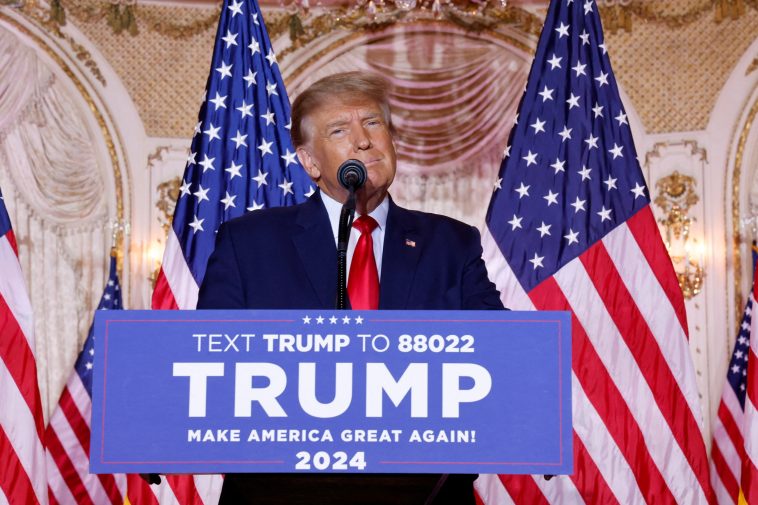As election season comes to a head, it’s becoming increasingly clear that some voters, despite their views on abortion rights, are supporting Republican candidates. These voters seem to reflect a unique political view, aligning with an otherwise liberal stance on abortion but endorsing conservative candidates overall. Especially in tightly contested states like Arizona, it’s observed that while some abortion-rights resolutions are anticipated to sail through, the presidential race remains a nail-biter.
This political anomaly could potentially jeopardize Vice President Kamala Harris and other Democratic hopefuls. Despite Democrats vigorously promoting their abortion rights campaigns in key states, there’s a lingering doubt around the impact this will have on the party’s overall prospects and support. The critical inquiry remains: how influential is the stance on abortion rights in swaying voters towards Democratic candidates?
Grave concerns continue to be expressed within Democratic circles even as the clock ticks down to Election Day. Several abortion rights propositions are being voted on, igniting engagement from voters who support those rights. Yet the confidence in these voters also rallying behind Democratic candidates, even after these measures pass, remains uncertain.
While the political landscape in Arizona and Nevada presents a heated presidential battle, the surety lies in the expected victory of pro-abortion rights propositions in these states. Similar dynamics are observed in Montana where Democrats face a tough battle to secure a Senate seat, and Missouri appears to be in favor of pro-abortion rights while still backing Senator Josh Hawley, a staunch critic of abortion rights.
This begs the question: Are voters on the cusp of bifurcating their votes to extend abortion rights and yet elect senators who have endorsed anti-abortion policies? A possible scenario could see passionate advocates of abortion rights elect former President Donald J. Trump, renowned for overturning Roe, while supporting abortion rights at the state level.
The overturning of Roe has forged a new voting blueprint with independents, liberal voters, and some moderate Republicans rallying behind Democratic candidates. The issue was amplified more than ever before on the Democratic stage, leading to triumph in the midterm elections. As the presidential race continues to intensify, the efficacy of these newly adopted political tactics are under serious examination.
Despite the volatile nature of the political climate, the Democrats resonate with a broad spectrum of voters on the issue of abortion. Poll results reflect a higher level of trust in Ms. Harris regarding abortion rights than in Mr. Trump, which could signify a growing gender gap shaping this race. However, a crucial subset of voters maintaining their support for abortion rights does not automatically pledge their vote for Ms. Harris.
Around 12 percent of respondents commented they would vote for both Mr. Trump and an abortion rights proposal, intriguingly. A slim majority of these voters expressed more faith in Attorney Harris to manage abortion rights. Yet, surprisingly, they place the matter lower in their ranking of issues.
Some voters, like Florida student Trent Wichmann, are adamant about supporting the pro-choice movement while also voting for Mr. Trump. He attributes his choice to Mr. Trump’s intense focus on border security, which he regards as a paramount concern.
The Democrats square off against an electorate that sometimes lacks in comprehension of the issues at hand. Misconceptions are rampant, with one in five voters in key states erroneously blaming President Biden for ending abortion rights. They fail to acknowledge that it was, in fact, Mr. Trump who appointed the pivotal Supreme Court justices responsible for overturning Roe.
The broader and diverse voter base participating in presidential elections can lead to unpredictability. With Roe overturned, voters are often influenced by a myriad of other reasons beyond the ballot measures, such as immigration, economy, infrastructure, and job creation.
Voting outcomes for different ballot measures this year are not straightforward. Kelly Hall, director of the Fairness Project, optimistically envisions victories in all five of the target states for her pro-abortion rights group, though she acknowledges the considerable opposition faced by measures in Florida and Nebraska.
Despite these challenges, the larger hurdle for the Florida initiative seems to lie in the required voter threshold, significantly higher than those of previous measures. The task at hand is to secure approval from over 60 percent of voters, an ambitious feat which if achieved, would mark an undeniable victory.


